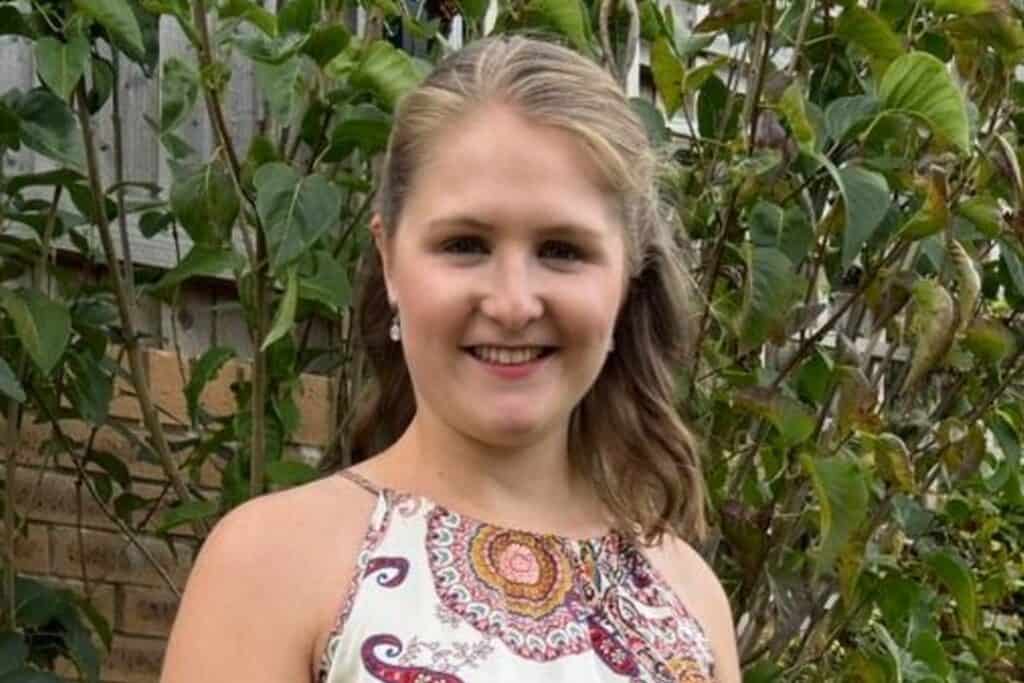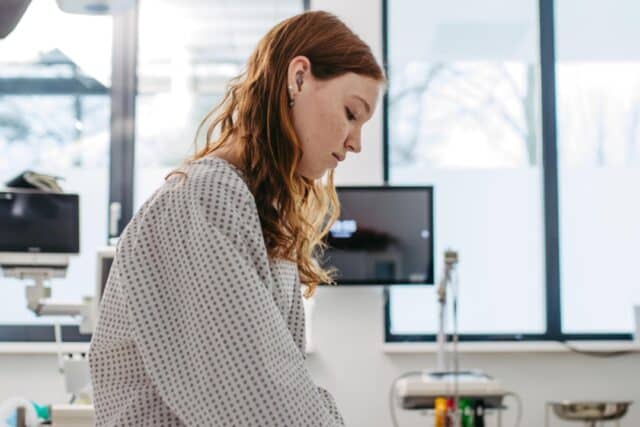
Although some healthcare services meet Esther’s communication needs well, others – particularly adult audiology and emergency care – have left her feeling overlooked. Here, Esther shares her experiences in her own words.
Discovering my hearing loss
I have bilateral sensorineural high-frequency hearing loss. It was only identified when I was 17, but doctors believe it developed gradually during my teenage years. There’s no history of hearing loss in my family, so it came as a bit of a surprise.
My hearing has continued to deteriorate, and I have worn two hearing aids for the last 10 years. I also rely on lip reading and captions, but I don’t use sign language.
Accessing healthcare
My experience with the NHS has been mixed. My GP practice is great – they offer different ways to communicate, like text notifications and emails, which makes things much easier for me. They come and get me from the waiting room and speak to me clearly.
But my experience with adult audiology has been completely different.
When I was under paediatric care, they knew my communication needs and provided excellent support. Their waiting room even has an electronic screen to display patient names alongside an audio announcement, which is helpful for people with different access needs.
But in the last ten years, since moving to adult audiology services in a different area, it feels like my needs have been forgotten.
Nearly every time I check in for an appointment, I have to explain – again – that I need the clinician to face me so I can lip read. My communication needs don’t seem to be recorded or even considered. I hate having to explain myself repeatedly. It makes me feel like I’m making a fuss when I shouldn’t have to. My needs should be acknowledged from the start.
I also find waiting rooms really stressful. Often, there’s no visual screen to show when your name is being called, so I’m always on edge, worrying that I’ll miss my turn.
I think a lot of people with hearing loss do what I do – sit near the door and constantly watch for movement. But that doesn’t help if someone calls my name unclearly or if they’re wearing a face mask, which makes lip reading impossible.
Feeling ignored in A&E
A few months ago, I had to go to A&E after a minor injury to my foot.
Checking in was fine, but when I saw the doctor, I ended up relying on my husband to repeat lots of information for me. The doctor wasn’t speaking clearly, and they were wearing a mask, which made lip reading impossible. I explained that I have hearing loss and asked if they could lower their mask so I could see their lips. They half-lowered it but didn’t make any real effort to communicate clearly with me.
Instead, they kept talking and relied on my husband to clarify information for me. I could tell he was uncomfortable – he felt I was being ignored and wanted to be there to support me, but not to be an interpreter.
I felt so frustrated and invisible. What if my husband hadn’t been there? Would they have made the effort to communicate with me properly, or would they have just spoken at me without ensuring I understood?
What needs to change
There needs to be more deaf awareness training across the NHS. Some services, like my GP, get it right, but others clearly don’t.
Communication needs should be recorded on patient files so that we don’t have to keep explaining ourselves at every single appointment.
And waiting rooms should also be more accessible. A simple visual and audio board system would remove the anxiety of missing your name being called.
Small changes like these would make a huge difference, so people like me can feel included, and respected in healthcare settings.
About Esther
Esther, 28, from Warwickshire, has bilateral sensorineural high-frequency hearing loss. Her hearing loss was identified when she was 17, and she now wears two hearing aids while also relying on lip reading and captions.
